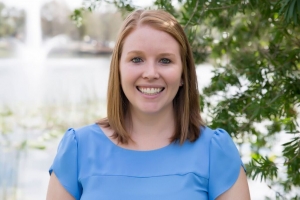By: Amanda Wiegert, LMHC, NCC
Set healthy boundaries and realistic expectations.
Are you noticing that most of your relationships are one-sided or emotionally destructive? Do you find yourself getting involved with the same types of unhealthy relationships over and over again?
If you answered “yes” to both questions above, then you may have characteristics of a codependent relationship. What is codependency and how does it prevent you from forming healthy relationships?
Now that you’re seeing possible signs of an unhealthy relationship, you may be asking yourself, “Am I codependent?”
The codepndent definition is:
“A codependent person is one who has let another person’s behavior affect him or her, and who is obsessed with controlling that person’s behavior,” according to Melody Beattie in her book Codependent No More: How to Stop Controlling Others and Start Caring for Yourself.
In order to break the cycle of codependency, you need to recognize codependent tendencies and traits.
Here are 5 ways to have healthy relationships when you are codependent on your partner.
1. Practice self-care
When you are involved in a codependent relationship, you often lose sight of yourself. You spend the majority of your time and energy trying to fix the other person. To move forward and create healthier relationships, it will be important for you to take time to explore yourself.
Explore your likes, dislikes, needs, desires, thoughts, and feelings. It will be detrimental if you don’t take the time to understand what you need from a relationship. If you don’t take the time, you will slip back into the pattern of taking care of someone else.
2. Learn to be independent
Start doing things by yourself without feeling like you always need to be around your partner. Take yourself out to dinner, go to the movies alone, or pick up a new hobby. Typically, people who experience codependency find it very difficult to spend time by themselves.
Codependent people have grown to be dependent on others for self-fulfillment. Learn to be content with being alone rather than fearing it. This is powerful in overcoming codependency.
3. Set realistic expectations
If you place unrealistic expectations on your relationships then you will be let down. Expecting someone else to fulfill you is only setting you up for heartbreak.
Learn to be happy with who you are as a person. That way, you don’t have to expect someone else to be the sole provider of your happiness.
4. Practice setting boundaries
Codependency in relationships often means there are very few boundaries in place. Chances are, you have spent a lot of time worrying about other people. And, you have let go of many of the important boundaries in your life.
Therefore, it is important to learn how to say “no” to people or situations that are not healthy. Saying “no” does not mean you are being selfish or disrespectful. Saying “no” means you are looking out for your well-being.
5. Deal with your past
Sometimes, your tendency to display codependent behaviors is a result of past trauma. Take a look at your family relationships, abuse, neglect, or other events that may be stopping you from being comfortable with who you are.
Digging up things from your past may be painful and uncomfortable, but it is necessary to be able to move forward.
If you feel like you may have the tendency to turn towards codependency, it is important to recognize that you can break the cycle!
You can have healthier relationships and work towards overcoming codependency!
Break the cycles by working on your self-care and by learning how to be more independent. And, set healthy boundaries and realistic expectations in order to achieve healthy relationships.
Often times, codependency comes from past trauma or relationship experiences. Therefore, it is helpful to talk with a professional to work through past traumatic experiences. This process can be uncomfortable, but you should not have to go through it alone! Please call Life Counseling Solutions today at 407-622-1770 to schedule an appointment or a complimentary 15-minute phone consultation with me.
 About the Author: Amanda is passionate about helping people navigate all stages of life. She believes great healing can emerge from trauma and challenges if we allow ourselves to be open to learning and exploring new ways of dealing with difficult life experiences. Read more about Amanda.
About the Author: Amanda is passionate about helping people navigate all stages of life. She believes great healing can emerge from trauma and challenges if we allow ourselves to be open to learning and exploring new ways of dealing with difficult life experiences. Read more about Amanda.

Leave A Comment